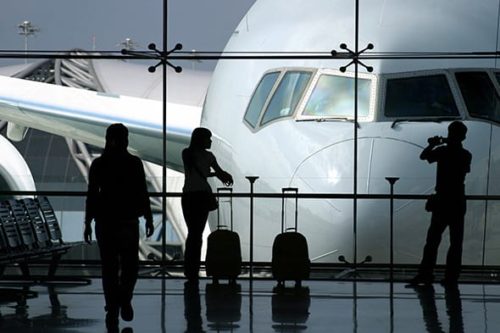Planning travel around the holidays is rarely simple. Coordinating flights or ground transportation is often just the beginning, and safely arriving at your destination may feel like a gift in its own right.
During the hustle and bustle of the holidays, concerns about health and safety can fall by the wayside, but some medical emergencies – whether it be an unforeseen accident, food reaction or chronic condition – are more prevalent during the holiday season. For example, the American Heart Association notes the highest incidence rate of cardiac mortality for the entire year occurs between Christmas and New Year’s Day. Food poisoning, intoxication, traffic accidents and injuries related to burns and decorations, among other incidents, also result in higher amounts of emergency room visits during the holidays.
This year, with holiday travel volume projected to be its highest since 2005 in the United States, according to AAA, take heightened precautions to prepare for the unexpected and protect your health and safety.
Schedule a safety net. During the holiday season, disruptions to your travel schedule are practically a guarantee. Plan for the inevitable by creating a travel schedule that gives you ample cushion for interruptions like traffic delays and late flights.
Carry your health history with you. While medical emergencies may not be predictable, having pertinent medical information for everyone in your party can make an unexpected medical event less problematic. Particularly for caregivers, whether your charges are children or aging adults, a tool like the Backpack Health app can help you get organized. The free mobile app provides secure access to personalized, comprehensive medical information and documents, including wellness, illnesses, injuries, chronic health conditions, physicians, prescriptions, allergies and treatments, in one central location on your mobile device. It is also multilingual, providing peace of mind even if traveling abroad and information needs translated for a medical professional.
“Especially for people living with chronic, serious and rare conditions, holiday travel often disrupts health routines – like skipping or rescheduling medical appointments and treatments or forgetting to refill, pack and take medications – and can rob people of enjoying time with friends and family,” said Jim Cavan, president and CEO of Backpack Health. “If you’re traveling across the globe or across town, having extensive medical history, for both you and your loved ones, at your fingertips offers assurance to enjoy the holidays with more peace of mind without the burden of carrying medical folders.”
For more information and to download the app, visit backpackhealth.com.
Pack for the unexpected. Plan around delays by ensuring you have snacks and entertainment to divert antsy children (and adults). Be sure to keep medications in your carry-on bags or where you can easily access them in the car. If you’re traveling by car, carry an emergency kit with items such as extra blankets, a first-aid kit and roadside flares.
Watch the weather. If you’ll be traveling to an area that experiences severe winter weather, or if you live in an area that could have wintry weather when you return, it’s a good idea to keep close tabs on the forecast. Timing your arrival differently by hours or a day can make a major difference in your travel time and safety.
As you embark on this year’s travel adventures, keep the spirit of the season alive and focus on all the good that awaits when you arrive.
SOURCE:
Backpack Health
